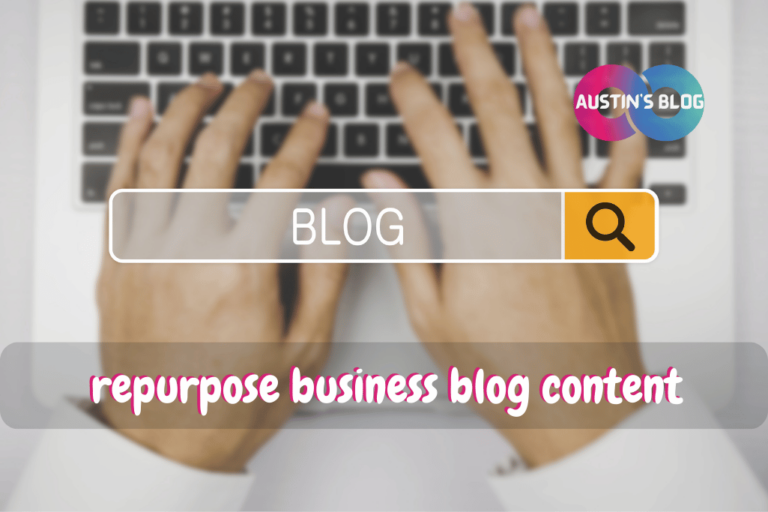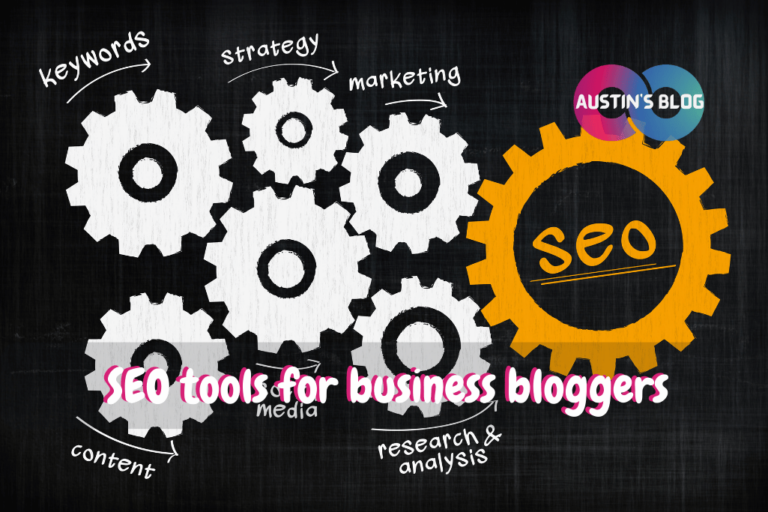Ethics in Lifestyle Blogging
Introduction
Hey there, amazing lifestyle bloggers! Today, we’re diving into a topic that might not be as glamorous as your latest fashion haul or as tasty as your new recipe post, but it’s absolutely crucial to your success and integrity as a blogger – ethics.
I remember when I first started blogging, I was so excited to share my life and experiences that I didn’t give much thought to ethics and its implications of what I was doing.
I’d share products I loved without thinking about disclosure, post photos of my friends without explicitly asking for permission, and didn’t think twice about the environmental impact of my constant hauls and unboxings.
But as my blog grew, so did my understanding of the responsibility that comes with having an audience. I realized that every post, every photo, every recommendation carries weight.
People trust us, and it’s our duty to honor that trust.
So, grab your favorite fair-trade coffee (see what I did there?), get comfy, and let’s explore the world of ethical lifestyle blogging. Trust me, understanding and implementing ethical practices won’t just make you feel good – it’ll make you a better, more trusted blogger.
Why Ethics Matter in Lifestyle Blogging
Before we dive into the specifics, let’s talk about why ethics are so important in our field:
- Trust: Ethical practices build trust with your audience, which is crucial for long-term success.
- Integrity: Maintaining high ethical standards preserves your personal and professional integrity.
- Legal Compliance: Many ethical practices are also legal requirements, especially when it comes to disclosure and privacy.
- Influence: As bloggers, we have the power to influence. With that power comes responsibility.
- Industry Standards: Ethical blogging helps maintain high standards across the industry.
- Personal Brand: Your ethical stance becomes part of your personal brand and can attract like-minded followers and brands.
Disclosure and Transparency
One of the cornerstones of ethical blogging is being transparent about your relationships and incentives. Here’s what you need to know:
Sponsored Content
- Always Disclose: If you’ve been paid to create content or received free products, your audience needs to know.
- Be Clear and Conspicuous: Don’t hide your disclosure in tiny text at the bottom of your post. Make it obvious.
- Use Clear Language: “Ad,” “Sponsored,” or “Paid Partnership” are all good, clear terms.
Affiliate Links
- Disclose Affiliate Relationships: Let readers know you may earn a commission from purchases made through your links.
- Be Transparent About Cookies: Some affiliate programs use cookies that can affect a user’s future purchases. Be upfront about this.
Gifted Products
- Disclose Gifts: Even if you weren’t paid to post about a product, if it was given to you for free, you need to disclose this.
- No Quid Pro Quo: If a brand sends you a free product with no strings attached, you’re not obligated to post about it. If you do, still disclose that it was a gift.
Pro Tip: Create a disclosure policy page on your blog that outlines your practices. Link to this in your posts for full transparency.
Authenticity and Honesty
In the world of perfectly curated Instagram feeds and FOMO-inducing lifestyle posts, authenticity is more important than ever:
- Be Genuine: Share real experiences, both good and bad. Your audience will appreciate your honesty.
- Don’t Fake It: If you haven’t tried a product or visited a place, don’t pretend you have.
- Balanced Reviews: When reviewing products or experiences, share both pros and cons. Nothing is perfect!
- Own Your Mistakes: If you make a mistake or share incorrect information, own up to it and correct it publicly.
- Behind the Scenes: Occasionally share the “real” you behind the curated content. It makes you more relatable.
Pro Tip: Consider starting a “Real Talk” series where you regularly share more candid, unfiltered content.
Privacy and Consent
As lifestyle bloggers, we often share personal moments. But it’s crucial to respect privacy – both yours and others’:
- Protect Your Privacy: Be mindful of how much personal information you share. It’s okay to have boundaries.
- Respect Others’ Privacy: Always get explicit permission before sharing photos or stories involving friends, family, or even strangers.
- Children’s Privacy: Be extra cautious when it comes to sharing content involving children, even your own.
- Location Sharing: Be careful about sharing real-time location information, especially if you’re away from home, as it can lead to unethical situations.
- Commenters’ Privacy: Respect the privacy of those who comment on your blog, as part of your ethical blogging code of ethics. Don’t share their personal information without permission.
Pro Tip: Create a personal policy about what aspects of your life are off-limits for your blog. This helps maintain consistent boundaries.
Intellectual Property and Copyright
Respecting intellectual property is not just ethical – it’s legal. Here’s what you need to know:
- Use Your Own Content: Always try to use your own photos, writing, and other content.
- Proper Attribution: If you use someone else’s content (with permission), always provide proper credit.
- Understand Fair Use: Familiarize yourself with fair use laws, but when in doubt, ask for permission.
- Respect Trademarks: Be careful about using brand names and logos, especially if it could imply endorsement.
- Protect Your Own Work: Consider watermarking your images and using copyright notices on your blog.
Pro Tip: Keep a record of permissions you’ve received to use others’ content. This can protect you if issues arise later.
Social Responsibility
As influencers, we have the power to impact more than just purchasing decisions. Consider your broader social responsibility:
- Diversity and Inclusion: Strive to represent diverse voices and experiences in your content.
- Body Positivity: Be mindful of promoting unrealistic beauty standards or harmful diet culture.
- Environmental Consciousness: Consider the environmental impact of the products and lifestyle you promote.
- Cultural Sensitivity: Be respectful and informed when discussing cultures other than your own.
- Mental Health Awareness: Be mindful of how your content might impact your readers’ mental health and self-esteem.
Pro Tip: Regularly audit your content to ensure it aligns with your values and social responsibility goals.
Advertising and Monetization Ethics
Monetizing your blog is great, but it needs to be done ethically:
- Quality Over Quantity: Don’t overwhelm your site with ads at the expense of user experience.
- Relevant Advertising: Try to ensure ads on your site are relevant to your content and audience.
- Honest Reviews: Never give positive reviews just to make a sale. Your audience’s trust is worth more than any commission.
- Clear Separation: Make a clear distinction between your editorial content and paid advertising.
- Ethical Products: Be selective about the products and services you promote. Do they align with your values?
Pro Tip: Create an “Advertising Policy” that outlines your standards for the types of ads and sponsorships you’ll accept.
Dealing with Ethical Dilemmas
Even with the best intentions, you might face ethical dilemmas. Here’s how to handle them:
- Pause and Reflect: Don’t make hasty decisions when faced with an ethical issue.
- Consider All Perspectives: Think about how your decision might impact your readers, the brands you work with, and the broader blogging community.
- Seek Advice: Don’t hesitate to reach out to fellow bloggers or mentors for advice.
- Trust Your Gut: If something feels wrong, it probably is.
- Learn from Experience: Use each ethical dilemma as a learning opportunity to refine your practices.
Pro Tip: Create an “Ethics Checklist” for yourself to refer to when making decisions about content, collaborations, or monetization.
The Future of Ethics in Lifestyle Blogging
As we look to the future, here are some trends and considerations to keep in mind:
- Increased Scrutiny: As influencer marketing grows, expect more scrutiny from regulators and the public.
- AI and Disclosure: With the rise of AI-generated content, new ethical considerations around disclosure may emerge.
- Virtual Experiences: As virtual and augmented reality become more common, new ethical guidelines may be needed.
- Data Privacy: With growing concerns about data privacy, bloggers may need to be more transparent about how they collect and use reader data.
- Sustainability Focus: Expect increased emphasis on promoting sustainable and ethical products and lifestyles.
Pro Tip: Stay informed about changes in regulations and industry best practices. Consider joining professional blogging associations that provide updates on ethical standards.
Conclusion: Your Ethical Blogging Journey
Whew! We’ve covered a lot of ground, haven’t we? From disclosure and transparency to social responsibility and dealing with ethical dilemmas, you now have a solid foundation for ethical lifestyle blogging.
Remember, being an ethical blogger isn’t about being perfect; it’s about adhering to blogging ethics and continuously improving.
It’s about being intentional, transparent, and always striving to do what’s best for your audience and the broader community.
It’s about building a platform that you can be proud of, one that reflects your values and integrity.
Start by reviewing your current practices. Are there areas where you could be more transparent? More inclusive?
More responsible? Make a plan to implement changes gradually. Maybe start with updating your disclosure practices, then move on to auditing your content for diversity and inclusion.
I’d love to hear from you! What’s your biggest challenge when it comes to blogging ethics in your lifestyle blog? Or do you have any ethical practices you swear by?
Drop a comment below and let’s chat. After all, we’re all in this together, working to make the blogging world a more ethical, trustworthy space.
Remember, your blog is more than just a platform – it’s a responsibility. By committing to ethical practices, you’re not just building a better blog; you’re contributing to a better blogging ecosystem for everyone.
Stay fabulous, live and breathe ethics as a lifestyle blogger! Happy Blogging!
Frequently Asked Questions: Ethics in Lifestyle Blogging
Q: What are the fundamental principles of blogging ethics that lifestyle bloggers should adhere to?
A: Lifestyle bloggers should adhere to principles such as honesty and transparency, giving credit where credit is due, and maintaining trustworthiness. These principles help in building a loyal following and ensuring the integrity of one’s blog.
Q: How can lifestyle bloggers maintain honesty and transparency in their content?
A: Lifestyle bloggers can maintain honesty and transparency by clearly disclosing sponsored posts and affiliations, providing accurate information, and being upfront about any potential conflicts of interest. This approach fosters trust with their audience.
Q: What role does giving credit where credit is due play in blogging ethics?
A: Giving credit where credit is due is crucial in blogging ethics as it acknowledges the original creators of content or ideas. Bloggers need to link back to sources and attribute content appropriately to maintain credibility and respect intellectual property rights.
Q: How should lifestyle bloggers handle hate speech and trolls on their platforms?
A: Lifestyle bloggers should establish clear community guidelines that prohibit hate speech and outline the consequences for such behavior. They should also moderate comments and engage with their audience in a respectful manner to create a positive environment.
Q: What are the ethical considerations when starting a lifestyle blog?
A: When starting a lifestyle blog, ethical considerations include being truthful about one’s experiences, avoiding plagiarism, and being transparent about any commercial relationships. Bloggers should also consider the impact of their content on their audience and society at large.
Q: How can bloggers ensure they are promoting ethical and sustainable fashion on their lifestyle blogs?
A: Bloggers can promote ethical and sustainable fashion by researching brands thoroughly, collaborating with companies that prioritize ethical practices, and educating their audience about the importance of sustainable choices. This approach aligns with ethical lifestyle blogging.
Q: Why is it important for lifestyle bloggers to build a loyal following, and how does ethics play a role in this?
A: Building a loyal following is important for lifestyle bloggers as it enhances their influence and reach. Ethics play a crucial role in this process by fostering trust and credibility, which are essential for long-term audience engagement and success.
Q: What are the ethical implications of using free blogging platforms for lifestyle blogs?
A: While free blogging platforms can be a great way to start a blog without financial investment, bloggers should be aware of the terms of service and potential limitations on content ownership and monetization.
Ethical considerations include respecting platform rules and being transparent about any restrictions.
Q: How can bloggers navigate the fine line between personal expression and ethical responsibility in their content?
A: Bloggers can navigate this fine line by being mindful of the impact of their words, avoiding sensationalism, and ensuring that their content aligns with ethical standards. Balancing personal expression with responsibility helps maintain the integrity of their blog.






